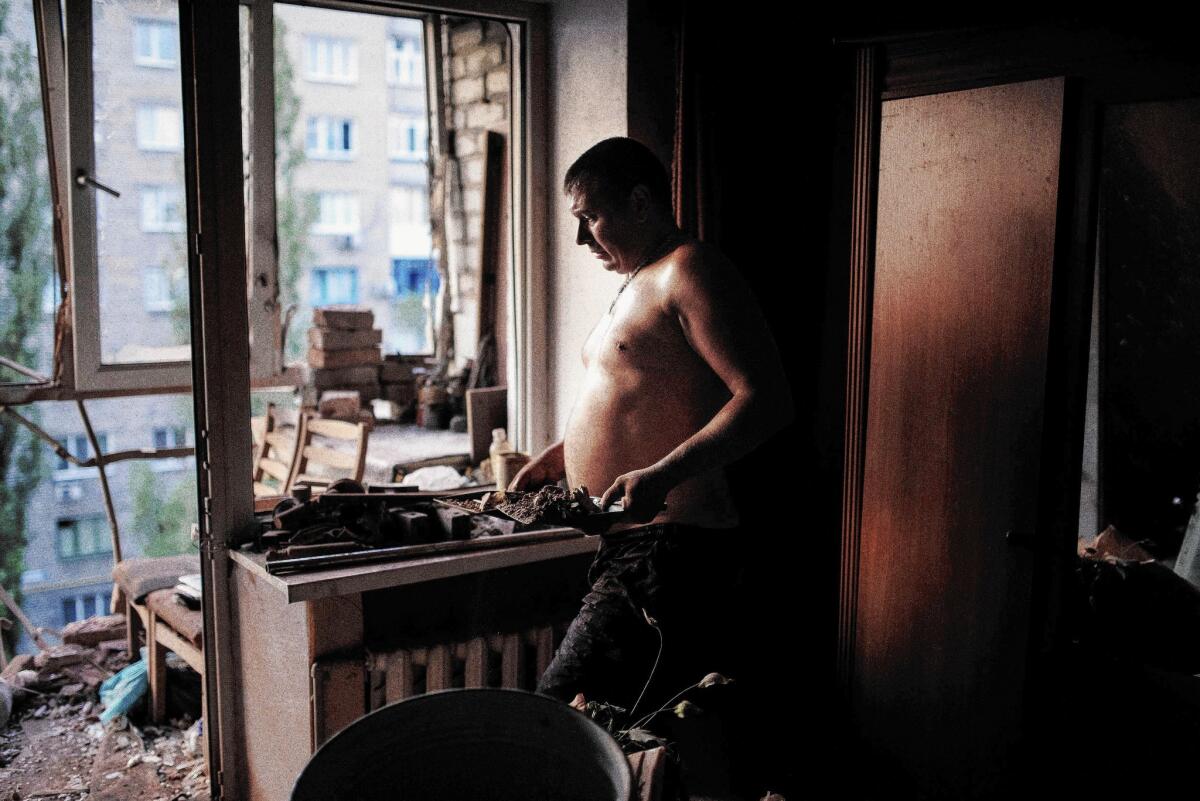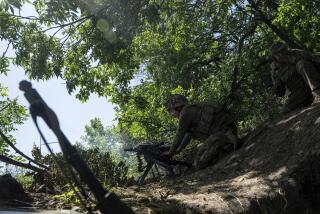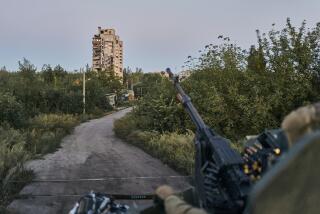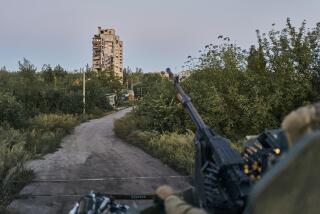Russian aid convoy puts Ukraine in difficult position

The Kremlin’s rush to get a massive aid convoy to civilians trapped in eastern Ukraine has confronted the Kiev government with the dubious choice of appearing insensitive as it delays delivery to inspect the cargo or letting through unchecked goods that could resupply a sputtering separatist rebellion.
Either way, Russian President Vladimir Putin scores a moral victory with the Russian-speaking communities in eastern Ukraine, where state-run Russian television has already convinced most residents that their suffering is due to a brutal Ukrainian government offensive.
The provision of water, baby food, sleeping bags and medicines could also blunt any Russian domestic backlash should Putin let the encircled separatists fall to the resurgent Ukrainian forces, analysts say.
Pro-Russia gunmen seeking to wrest eastern Ukraine from Kiev’s rule seized much of the Luhansk and Donetsk regions in a spring uprising inspired by Russia’s annexation of the Crimean peninsula in March. But as the militants have been pushed out of more than half of the seized territory over the last month, Russia has amassed 20,000 troops on Ukraine’s eastern border in what NATO officials have warned could be a prelude to an invasion.
Russian military veterans who commanded insurgent operations in the spring have withdrawn in recent days, leaving a weakened separatist force that the Ukrainian government says is now surrounded in its last two strongholds.
The signs of a failing rebellion and the potential for Russian intervention to save it have made Kiev fearful that the Russian relief mission could be a Trojan Horse operation to reinforce the militants with arms and fighters.
Russia’s emergency services ministry dispatched a 280-truck convoy Tuesday, before details of its entry into Ukraine and distribution of the aid had been agreed to by the government in Kiev.
A top advisor to Ukrainian President Petro Poroshenko warned that Russian military vehicles and personnel wouldn’t be allowed through the border and that the Russian aid must instead be transferred to vehicles owned or leased by the International Committee of the Red Cross.
“We are not considering any movement of Russian columns through Ukrainian territory,” Valeriy Chaly, deputy head of the presidential administration, told reporters at a news conference in Kiev.
Any attempt by the convoy drivers to enter Ukraine without Red Cross inspection and escort will be regarded as “an act of aggression,” Chaly said.
The Red Cross has advised Kiev and Moscow that it needed several days to assess the security situation in eastern Ukraine and devise a means of delivering the aid to those who need it.
The convoy was due to arrive at the Ukrainian border near Kharkiv on Wednesday but was likely to face several days of delay as the rival governments work out details of its passage.
“If Putin can pull this off in a way that makes it look like Russia really cares about eastern Ukrainians and it’s the government in Kiev that is blocking them, he scores a public relations victory whether the aid moves in or not,” said Steven Fish, a professor of Russian studies at UC Berkeley.
Sending nearly 300 large vehicles capable of transporting troops across the border also bolsters Russian forces’ readiness for an invasion, Fish said, should Putin decide to forgo any chance of expunging the pariah image he has acquired over the last six months.
Others see the aid convoy as potentially subverting any criticism of the Kremlin at home should the separatist drive fail and Putin decline to come to the rescue of the pro-Russia separatists.
“The Russians have succeeded in changing the subject internationally from whether Putin will invade to what is being done to help the victims of this conflict,” said Andrew Weiss, vice president for studies at the Carnegie Endowment for International Peace.
Weiss surmises that Putin is seeking to avoid leaving the impression with Russian nationalists that he is abandoning the separatists to evade further Western sanctions.
Matthew Rojansky, head of the Wilson Center’s Kennan Institute, says that Ukraine and its Western allies have cast Russian actions in eastern Ukraine as so nefarious that even a genuine humanitarian gesture is regarded with suspicion.
“We have to be careful with that implicit assumption that whatever is good for Putin is bad for us. Zero-sum thinking is always foolish and in this case it is just not objectively true,” said Rojansky.
“We let the convoy in and acknowledge that Russia’s role is not entirely demonic, or we don’t let it in and we look petty and indifferent to the suffering of people. Where are the 300 truckloads of American aid?” he asked.
After more than four months of fighting, water and electricity systems in urban centers held by the separatists have been badly damaged and food, fuel and medical supplies to the city have been disrupted.
More than half of the 465,000 residents of Luhansk have fled, as have many from Donetsk, a city of a million residents before the separatist uprising.
Follow @cjwilliamslat for the latest international news 24/7
More to Read
Start your day right
Sign up for Essential California for news, features and recommendations from the L.A. Times and beyond in your inbox six days a week.
You may occasionally receive promotional content from the Los Angeles Times.







